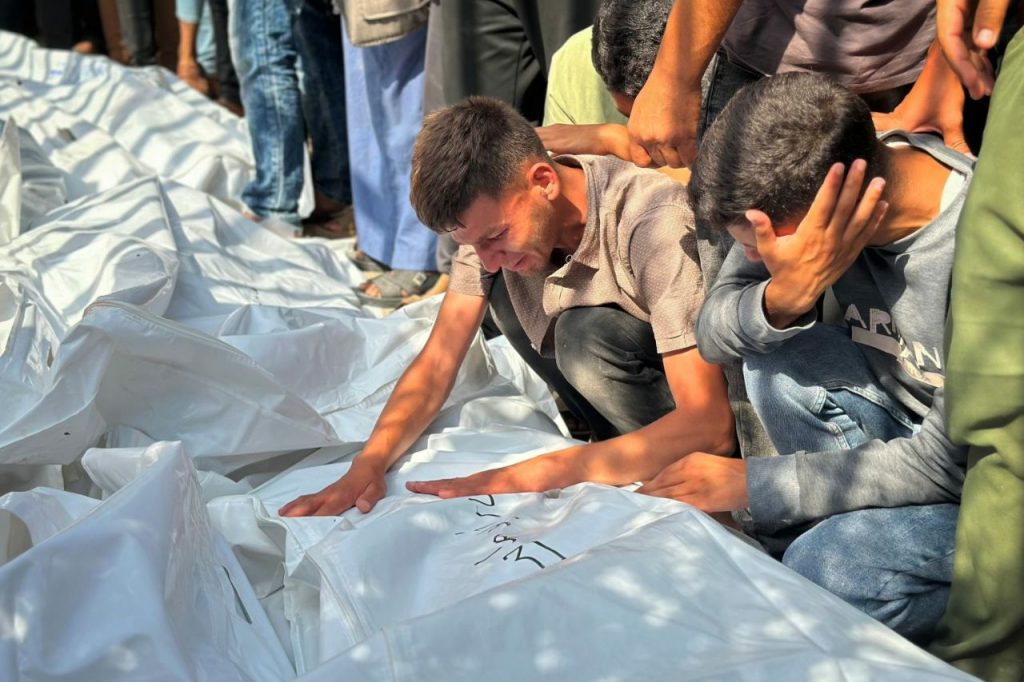This Eid al-Adha, Gaza is Muslim world’s sacrifice
Didpress: Mondoweiss media outlet, in an analysis, argues that hunger in Gaza today is no accident. This reality is engineered by Israel with the complicity of the United States.

The animal sacrifice of Eid al-Adha reminds us of Prophet Ibrahim’s readiness to give up what he loved most for the sake of God. Today, the Muslim world refuses to sacrifice our comfort or stability, and so we offer up Gaza for slaughter instead.
As Muslims around the world prepare for Eid al-Adha, during which millions will sacrifice livestock to feed themselves and those around them, we must pause and ask ourselves: what are we truly commemorating this year?
While Muslim families across the world divide meat into thirds—one for the poor, one for relatives, one for themselves—Gaza starves.
In Gaza today, starvation is not accidental. It is an engineered reality by Israel and U.S. complicity. According to Oxfam, people in northern Gaza are surviving on just 245 calories a day, less than what’s in a single can of beans. A fraction of the 2,100 daily calories required to stave off malnutrition. The United Nations has declared Gaza the “hungriest place on Earth.”
The qurbani or udhiya (sacrifice) of Eid al-Adha is meant to remind us of Prophet Ibrahim’s (AS) unwavering faith — his readiness to sacrifice his son and give up what he loved most for the sake of God. Qurbani is not just symbolic; it is a reflection of our moral conviction — a measure of what we are truly willing to sacrifice for a higher calling.
And what does God actually ask of us? The Qur’an is clear: “It is neither their meat nor their blood that reaches Allah, but it is your piety that reaches Him.” (22:37)
What matters is the intention behind the ritual — the God-consciousness with which we make the sacrifice. That is what reaches Him.
In Islam, piety (taqwa) is not passive — it is meant to be a shield, a living moral compass.
And if our sacrifices don’t forge that shield — if they don’t compel us to stand up for the oppressed — then what are they for?
If taqwa compels action, then we must ask: what do we see in the mirror this year?
We see a Muslim world flush with wealth. Leaders who issue statements of concern but preserve their alliances with oppressors. Populations who raise prayers but not concrete actions — who do not demand to open the borders between Jordan and Gaza or Egypt and Gaza. Leaders “modernizing” traditionally conservative societies — filling stadiums with concerts and fireworks — yet showing no urgency in forcing the U.S. to allow aid in with the power of their billion-dollar investments and trillion-dollar bids.
Gaza’s suffering is policy-driven and profit-protected.
It is the inversion of Qurbani and the corruption of sacrifice. We rewrite Ibrahim’s story — not as a tale of moral courage, but of moral cowardice.
True Qurbani is not about killing. It’s about giving and submission — about obeying a higher call even when every part of you wants to say no.
That call echoes in the cries of the starving, in the sobs of children, in the blood-soaked soil of Gaza.
True Qurbani is not in the meat of animals. It is in what you are willing to live for — by giving up something precious for justice, and the sanctity of human life.
This Eid, Gaza needs political will. It needs a Muslim world that remembers that faith without justice is hypocrisy.
May this Eid be more than a ritual or tradition. May it be a turning point — not just for Gaza, but for the sake of humanity and the God the ummah claims to serve.